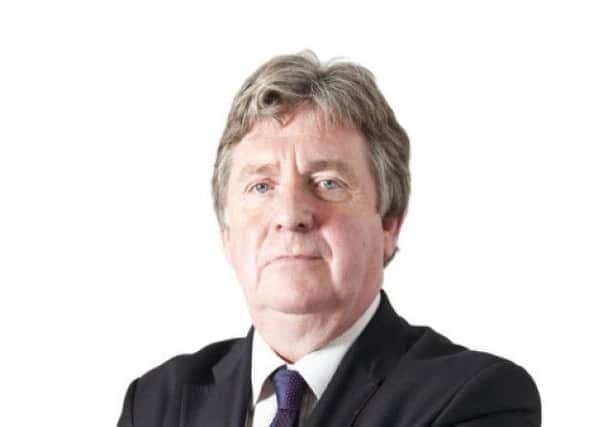Comment: Carphone/Dixons merger strategy rings true


The possible merger of Carphone Warehouse and Dixons Retail to form a high street giant worth about £3.5 billion therefore comes right out of left-field.
Maybe, with hindsight, it was easy to see Sir Charles Dunstone’s Carphone would be looking for another strategy for growth since US giant Best Buy abandoned its joint venture to build a chain of European megastores with the British company last April.
Advertisement
Hide AdAdvertisement
Hide AdAnd Carphone and Dixons do not just share some nebulous connection with consumer electronics. Carphone has been selling laptops for some time, while Dixons chief executive Sebastian James has aired his desire to move into the phone market.
Dixons already has concessions with Phones4u in its stores, although this would be a massive acceleration of the strategy.
James has also cleared the decks for such a move in the past year by offloading loss-making e-commerce business Pixmania and its Turkish operations, and partly exiting Italy.
Meanwhile, Carphone has been flourishing because of the boom in smartphone and tablet sales. Electronic devices are increasingly interconnected, and a Carphone/Dixons marriage – the latter also owns Currys and PC World – would place it in the high street vanguard of such developments.
Both companies having similar stock market valuations – at about £1.8 billion – is another positive for a deal because it would make a tie-up achievable through a nil-premium, all-share merger.
Then, on a more mundane rather than strategic level, there would likely be major savings on store closures and central function de-duplication. It would also give the bigger, broader company more bargaining power with key suppliers, such as Apple and Samsung, in a fast-moving consumer electronics landscape. The mooted deal looks to have quite a lot going for it.
HSBC does swings and roundabouts routine
Well, knock us down with a compensation feather. HSBC bank is to body-swerve European Union-imposed bonus ceilings by paying a new quarterly “allowance” that will not qualify as a bonus because it will be without any performance criteria attached.
It will be a gratis bonus in all but name, rather than an earned payout. That’s all right, then. One can’t bracket this under unintended consequences of the crackdown by Brussels, as UK politicians and other critics of the EU bonus cap predicted from the outset that this is what would happen. Heigh-ho.
Advertisement
Hide AdAdvertisement
Hide AdOn the broader level, HSBC’s broad historic exposure to Asia is not doing it tremendous favours at present because of the volatility in emerging markets (although not currently in Hong Kong).
But group chief executive Stuart Wheeler is undoubtedly right to stick with the region. Far more often than not down the years, Hong Kong and the rest of Asia has pulled HSBC out of a tough spot elsewhere in the globe ie the US sub-prime meltdown, for instance, or European slowdowns.
Asian volatility will pass, and HSBC has the base, connections and expertise to ride that upturn when it arrives.